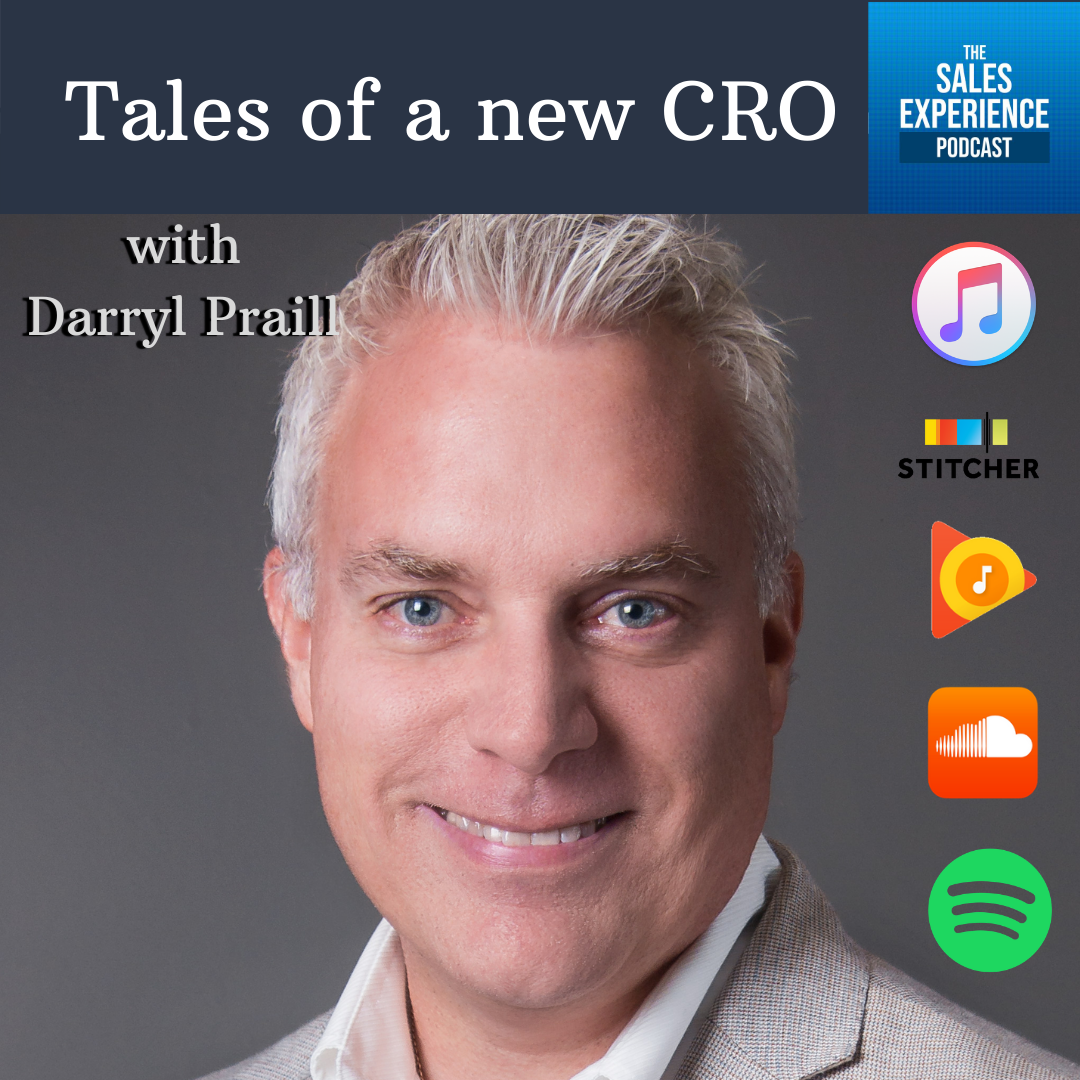Show Notes
When there are proper ways to bring empathy into a sales conversation, then unfortunately there are also improper ways that will cause empathy fails. This is part 2 of the Empathy portion of Fundamentals Week.
Listen in to find out the cautionary observations from my years spent managing sales people, as well as being a customer in situations where sales rep do the types of things that give ‘sales’ such a bad name.
Episode 14 – Transcript
Welcome to Episode 14 of The Sales Experience Podcast. My name is Jason Cutter and the question for today is ‘have you ever seen someone fail at empathy?’ And I mean really crash and burn? Maybe their heart was in the right place but the delivery was terrible. Or maybe their heart wasn’t even in it and it came across really forced.
Yesterday I talked a little about why empathy is important in any sales process and how to do it well. Fundamentally empathy is needed in all relationships and interactions.
When done right it is coming from a place in your heart and mind where you have some semblance of understanding for the pain, struggle, goals, dreams, or hopes that your prospect has. And then you want nothing more than to get them to a better place through the purchase of your product or service, or at least a plan and direction of what they should do instead.
But what about when empathy goes wrong? What does that look like and what causes it? Well, in my experience there are two ways it goes wrong.
The first is when there is too much empathy. When the salesperson cares too much. Now you might say ‘Jason, there is nothing wrong with caring too much.’ Well there is, if the sales interaction devolves into a big emotional pile of mess that doesn’t result in any actions being taken.
I have seen many reps, usually supportive nurturing personality types who can go full empathy and caring but then struggle to convert that energy into a sale. They either feel so bad for the other person, or take on too much of their pain, that they are then afraid to move the conversation towards the close. Its especially important to avoid it from just becoming a giant pity party. Pity parties don’t close deals.
If you are a sales manager or leader, the unfortunate part from my experience is that if you have this type of salesperson on your team they will never work out. You know what they would do really well in your organization? A role like customer service, which is all about nurturing and caring to help diffuse upset customers and help resolve their issue. Just keep them away from having to move someone towards a purchase.
The second way empathy goes wrong is when there is none. This could either be a symptom of the sales process, the company culture, or the salespeople themselves. It is especially prevalent in the beginning of new sales people’s careers. There is so much going on at once when you are selling and if you are new it can feel overwhelming.
It takes time to get comfortable and automatic with the CRM, data entry, scripting, questions to ask, quoting, and so on. If you are new to sales or you recently changed to a new company, product or service, that you maintain your focus on the prospect first and foremost. Make sure you are actively listening during the conversation.
Years ago I had a rep who was on my team. We were helping people with a financial hardship program. The rep was new, and going through the scripted questions to ask for the intake. He got to the hardship question ‘Since this is a hardship program, what has happened in the last three to five years that has led to the debts you have now?’ The prospect responds with ‘My wife died of cancer.’ The rep, new, nervous, focus on the script doesn’t skip a beat and replies with ‘Ok, Great. Now the next part of the application…’ If I had the recording of that call still I would play it for you. And you would hopefully cringe. Okay – great? Really.
I did use that soundbite for years in the training on how to fail at empathy. What is wild is that he did not get that enrollment. And the subtlety of missing empathy and not actively listening put a giant dent in his chances to help that person that day. And most people don’t realize when they say something that results in a non-sale. But in most interaction recordings you can find where things turned downward.
Make sure you are showing actual empathy. If you find that you don’t truly care about your prospects – which I have had reps who felt that way – then I would strongly suggest you find another product or service to sell, or another line of work. Honestly. I am not trying to be mean.
But your prospects will feel that you don’t care and you will struggle to create consistent success at your sales role if your prospects are constantly thinking about whether you really have their best interests in mind.
Again, this applies to any product or service. Can you sell a car without empathy or caring about getting the prospective car buyer into a better situation? Yes – you could. But then you risk being that car sales person that everyone dislikes.
The one who can close deals, sell cars, but the moment someone drives off the lot they have a bad feeling because they know they either didn’t up with what they wanted, or they paid a price they shouldn’t have. Your customers should never wake up at 2 am regretting their decision. Questioning – yes. Regretting – no.
As you create a successful sales experience that moves your prospects into customers, remember the power of empathy. Especially remember that it can’t be faked. Sure, like they say, you can fool some of the people some of the time, but you can’t fool all the people all the time.
I have seen unempathetic sales people fake it enough to close some deals but never at a high level, and never consistently. And even on the sales they make today, there are usually a higher level of cancellations or returns afterwards, when their sales ‘spell’ wears off and the customer realized what happened.
If you are a sales manager or leader and feel there are ways your team could improve and you want some help getting them there – go to the website – cutterconsultinggroup.com and use the form to get in contact with me. I would love to get on a 30 minute discovery call to find out how I can help add value to your business and your reps.
If you are a sales rep listening to this and you think there might be ways your company could improve, which would help you close more deals and make more money – share the podcast with your manager or owner.
That’s it for this episode. Until next time, always remember that everything in life is sales and people will remember the experience you gave them.
![[E14] Fundamentals Week: Failing At Empathy](https://episodes.castos.com/salesexperiencepodcast/images/TSEP-Cover-Fundamentals-Week-2.png)


